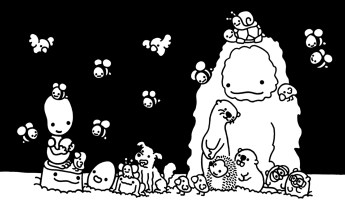
Love learning from TED speakers? Get a deeper, more interactive experience with them with TED Courses. Each four-week course is led by experts who will teach you skills for improving your life — whether it’s expanding your imagination and revamping your career to strengthening your memory and building healthy relationships as an adult.
How would you describe your feelings about social media?
Do words like “entertaining” and “connecting” come to mind — but also words like “exhausting” and “polarized”?
You’re not alone if you find social media to be both a space for staying informed and a space full of a lot of venom and disagreement. These days, that’s the landscape we log into and live in.
Here, Dylan Marron — author, podcast host and instructor of the TED Course “How to connect in a divided world” — explains the challenges that complicate our online conversations and how we can overcome them:
Challenge #1: A constant stream of information demands all our attention
Marron calls this the “Everything Storm.” There’s simply too much information being constantly shared for us to be able to absorb and respond to everything — and yet we’re often compelled to try. As a result, “we end up not knowing what to focus on and ultimately just exhaust ourselves,” Marron says in a lesson from his TED Course. And that’s how we may chime in on topics or issues that we don’t really care about (or know much about) and say something that’s uninformed, inaccurate or just insensitive.
The solution: Realize that you don’t have to have an opinion about everything
It’s OK — and normal — that there are some topics you know more about and others you know absolutely nothing about, and limit your comments to the former. “By focusing on just one or two topics, by leaning on our own personal experience and not vague references to news stories we only half know, we can escape the storm or at the very least grab an umbrella as it wails around us,” says Marron.
Challenge #2: We have little space on social media to fully express ourselves
On many social platforms, conciseness is key. Some enforce strict character limits, while others tend to give more visibility to messages with fewer words. That’s conducive for speed and efficiency, but nuance and complexity end up falling by the wayside. As Marron puts it, “some of our thoughts are too messy, too complicated, too unformed to whittle them down into a bite-size package.”
The solution: Head to a space where there’s room for you to share complete thoughts
Talking on the phone or in person is ideal, but that’s not always possible. So rather than condensing your opinion into a short reply that’s ripe for misinterpretation, try taking a conversation to someone’s DMs. “Move to platforms and modes of communication that allow us to fully express ourselves without limitation,” Marron says.
Challenge #3: Social media has become a spectacle where we all compete for “likes”
Many parts of the internet have become a battleground, turning all — whether we like it or not — into spectators. We use emojis to cheer and boo, and often the supposed winner of a debate is the one who gets the most “likes.” While this can sometimes be entertaining, it can interfere with forming genuine connections with other people.
The solution: Exit the arena
Again, this is where direct messages can come in handy. “Find a place far from the audience, where clapbacks and disses aren’t rewarded with instant points, and set up your conversation there,” suggests Marron.
You could start a private message with something like “I wanted to take this conversation here because it’s important to me.”
Challenge #4: We see anyone who disagrees with us as a troll
The above challenges are just a few of the structural hurdles that social media presents. But one of its biggest challenges is its impact on how we interact with — and view — other people. It’s sad but true: Many of us act differently online than we would in real life, often in more hurtful ways.
Internet harassers often see the people they harass as less than human, but “we also have to contend with the fact that our coping mechanism is to regard these harassers as inhuman entities themselves,” says Marron.
When both sides see each other this way, it leaves us all dangerously close-minded, each believing that we are inherently better than the other.
The solution: Remove “troll” from your vocabulary
If you truly want to have a meaningful exchange with someone else, you’ll need to have some empathy for them. In this case, that means “an active refusal to dehumanize even the people who dehumanize others,” says Marron. Remember this: You’re speaking with someone who has a depth of feelings and experiences that have shaped their opinions.
Yes, it can be hard to see haters as human, especially if you’ve never met them in real life. But when you make it a point to approach people online with compassion, you’re on your way to having a conversation that may change perspectives and open doors to new understanding.
Sign up for Dylan Marron’s TED Course and learn more about bridging gaps and forming meaningful connections. Or, check out our other TED Courses to learn more important skills, from “How to take a life-changing journey” with celebrated travel writer Pico Iyer, to “How to become your best adult self” with educator and author Julie Lythcott-Haims.











